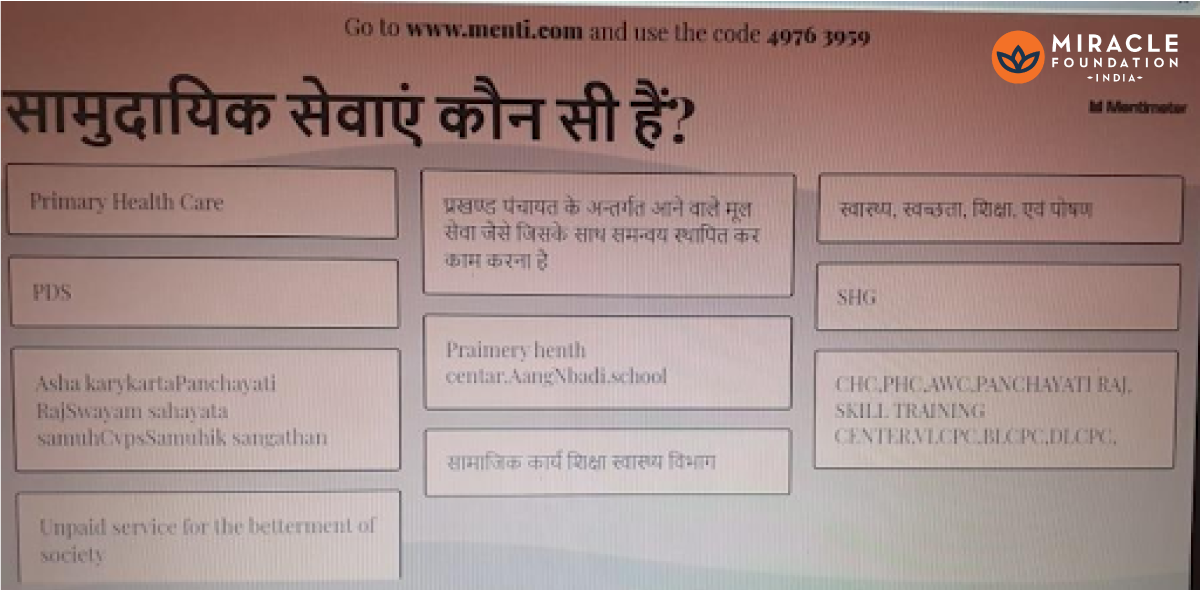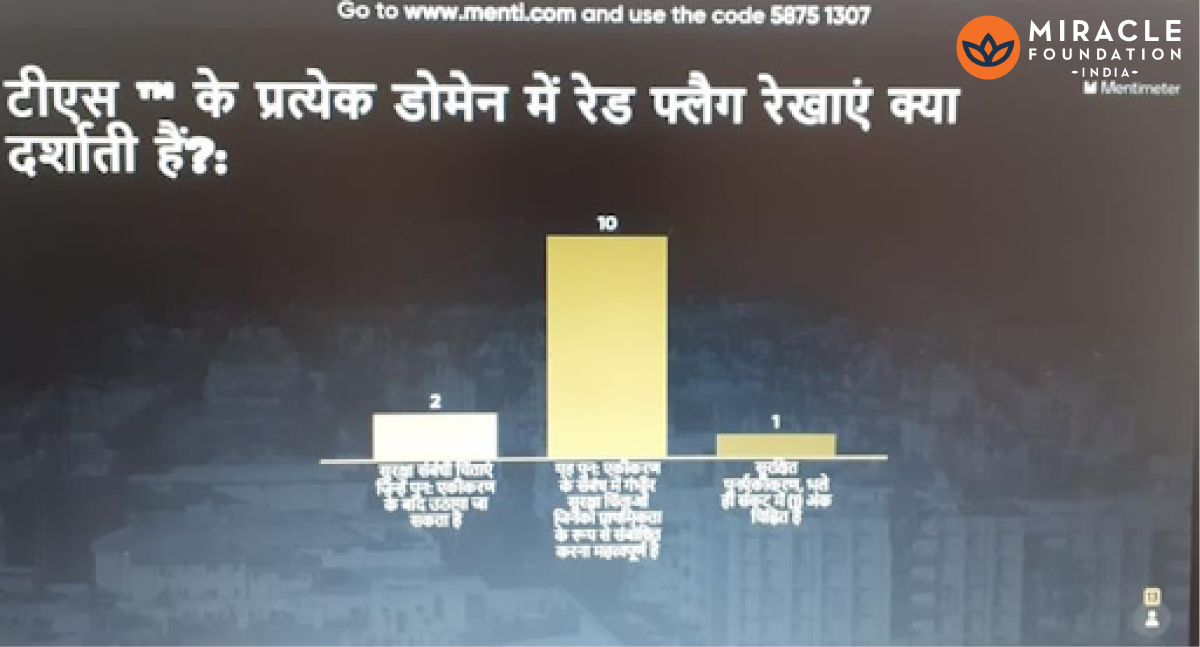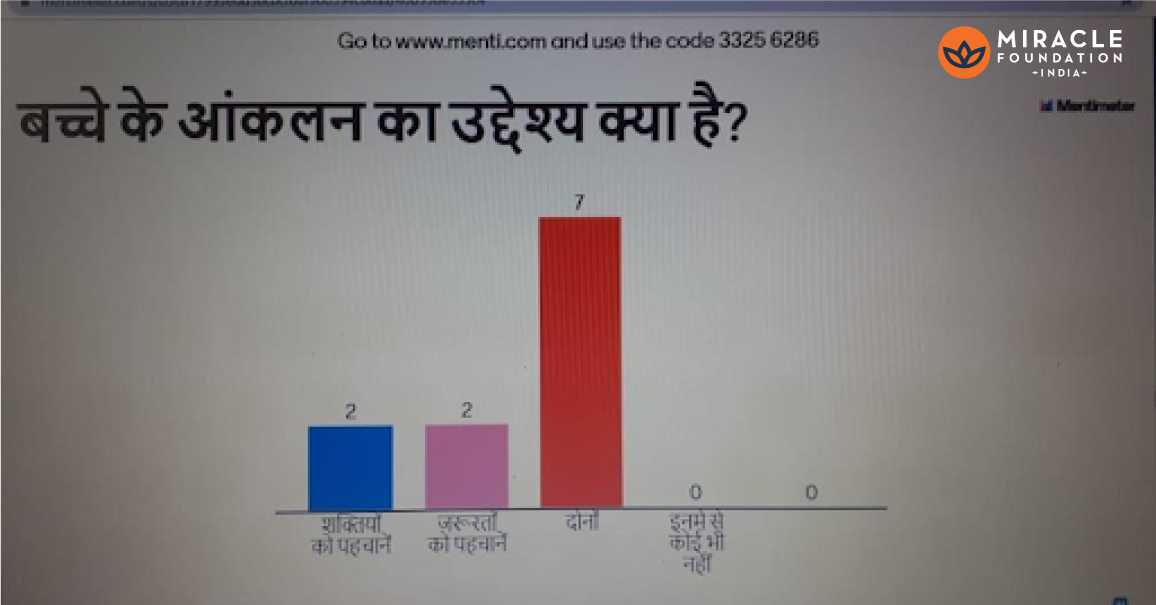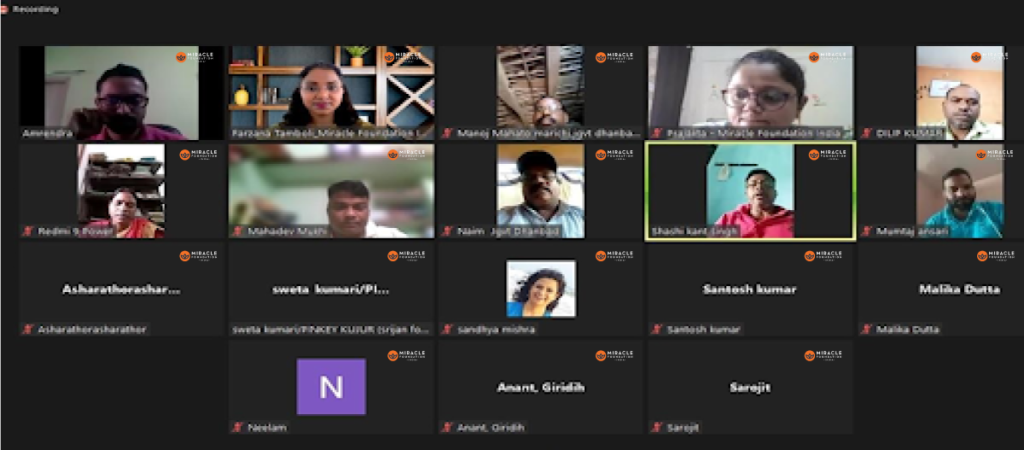Strengthening expedited case management mechanism and family-based care program in Jharkhand for children affected during COVID
A training program for Capacity building of Case Managers and Regional Supervisors on Expedited Case Management (ECM) processes was held earlier in October by Ms. Farzana Tamboli (Technical Lead, Miracle Foundation India). A total of 96 participants participated in the ECM Jharkhand training. The training was divided into two batches & four groups of four days of training. It comprises selected members from the Jharkhand Taskforce, childline & Srijan Foundation.



Child-centered restoration & reintegration is multi-layered and begins with assessing both the root causes of separation and the current circumstances of the family. Family restoration is not a one-time event. It requires extensive collaboration to determine if it is in the child’s best interests, identifying and facilitating appropriate family-strengthening services, preparing the child and family, supervising pre-placement communication and visits to encourage reconnection, and offering regular post-placement follow-up support. This is the purview of a systematic family-based care case management process. Under this Program, Miracle Foundation India aims to build the capacity of the social workforce, so that every child can get an atmosphere of happiness, love, and understanding and are able to exercise and enjoy their rights and it was realized that their capacity enhancement is very important. The program will develop local capacities of identified case managers of Jharkhand Alternative Care Task Force (JATF) and ChildLine in the sphere of child care and protection at the state and district level in the technical sphere of case management particularly focusing on Expedite case management approach. So that they can work efficiently in carrying out their roles and responsibilities.
The topics which were covered were Upholding the rights of the child, skills to connect with children, the process of case management & family strengthening, effectively filling of form 22 & Thrive scale also built understanding on the case management tracker and resource mapping sheet. Experts from the Miracle Foundation India Base Model team were invited to share their practical experiences with the participants.
By the end of the training, the participants realized that the training was very helpful as they will be able to interact with the children & family in a better way, along with critically assessing the situation and safety of the children. They can also give their suggestions and recommendations to the DCPUs & CWC accordingly.
Participants learned about the expedited case management process and what are the factors that should be considered. They have developed an understanding of the tool – Case management, Thrive scale assessment tool, and mapping resources to strengthen the family.
Here’s what the participants had to say about the training program
- “First time I have seen and learned about SIR, I find it important, helpful. As of now I'm feeling confident to use it. When I will use it on the field then I will get more practical experience.”
- “Thrive scale I found a more detailed and useful tool because we use ICP & SIR but this will give more specific options & scope to quality assessment and also provides suggestions for intervention plans and we can track our progress. We would like to use it.”
- “In this session, I have learnt how to work with children and families where children were sent back in unplanned ways.”
- “Though these are online sessions, they are interactive & I don’t even realize the time, in every session I am learning new things which keeps me engaged.”
- “I usually do home visits, do assessments but never thought about listening skills. Today, I learned listening skills by using my senses. The most interesting thing was listening by mouth and body. I can say my takeaway from today’s session. I will use this learning on the field when I do home visits.”
Participants of this training liked the methodology like the ice-breaker, discussion, Menti-meter, zoom poll, google forms, and chatbox. The sessions were interactive and a lot of experience sharing was done. Regional supervisors' involvement in ensuring case managers regularly attend was helpful. Participants shared the challenges they face during the visit to families, and experts helped them with ways to address those challenges.


